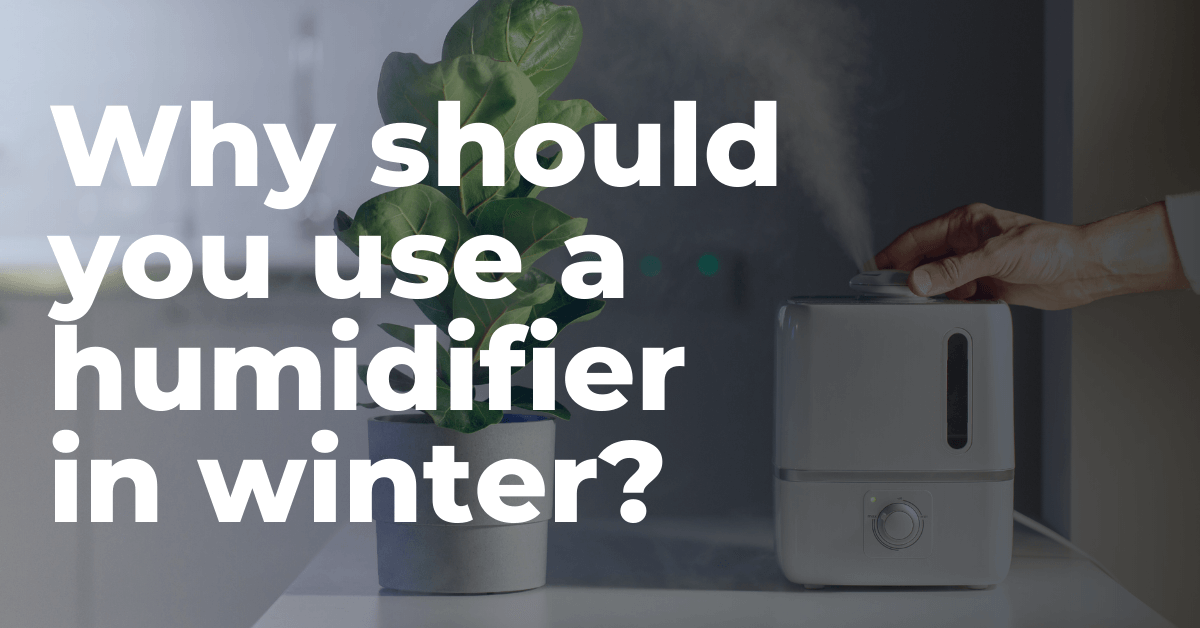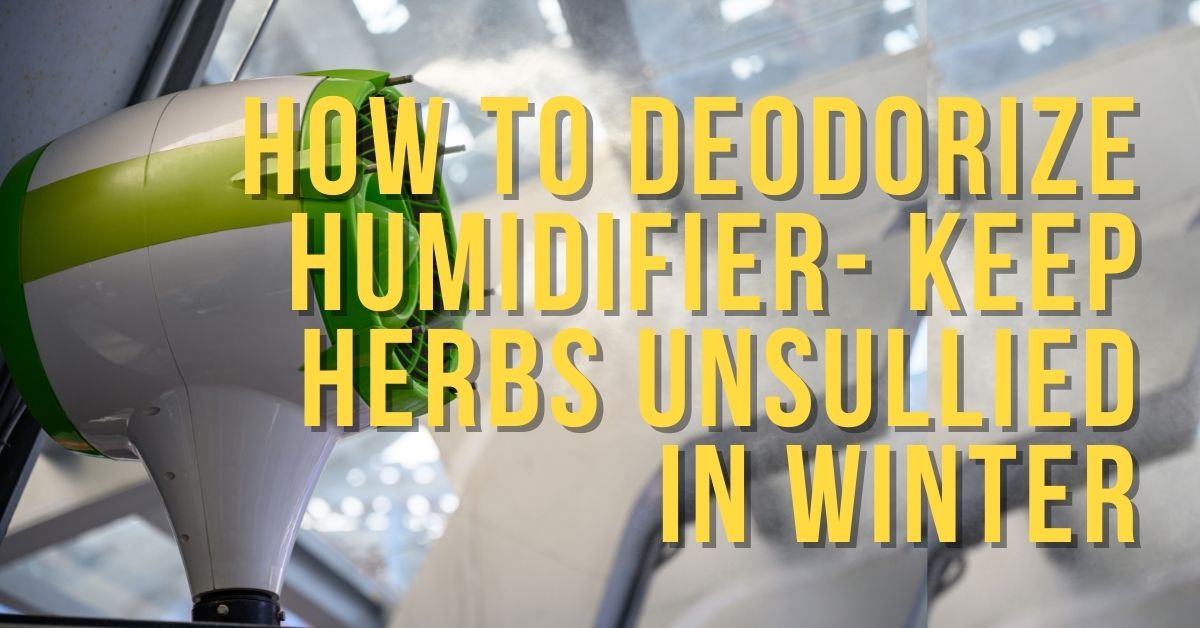During the winter season, air lost its humidity; thus, the weather became dry. This dry air is responsible for various diseases particularly, colds. Also, due to less humidity, people often face dry throat, an itchy nose, crack skin, cough, irritating eyes, etc.
It is necessary to have a humidifier in order to prevent all these problems because this device adds extra moisture into the air, increasing humidity levels. As a result, the cold air became warm surrounding it. Apart from that, it has a lot of benefits. So, try to use a humidifier during winter and keep your family safe and healthy.
Benefits of a humidifier in winter
The standard humidity level is about 30 to 50 percent. In winter, however, the percentage of humidifiers drops below 30. Sometimes this level falls even lower, and the environment becomes tough to survive. In this situation, an indoor humidifier can be the best solution. Below see the other benefits of a humidifier in winter at a glance.
#1 Deactivate the airborne viruses
There are several types of airborne viruses in the air, and dry air creates a friendly environment for these viruses. For this reason, during winter, people get affected by the different types of airborne viruses. A humidifier comes in handy in this situation.
The moisturizers that emerge from a humidifier make it difficult for airborne viruses to fly through the air. Because the moisturizer tends to add with other flying particles, it combines with these viruses and makes it heavy. As heavy airborne viruses can’t fly, they eventually drop to the ground.
#2 Reduce static electricity
You can get electric shock by touching your pets and family members in the winter because of dry air. Less humidity is the main reason for this situation, and a humidifier increases the moisture in the air and avoids this circumstance.
#3 Saving money on utilities
To increase the room temperature during winter, most people use a heater that needs electricity or fuel. Since humidity can preserve the heat, a humidifier proved helpful as it increases humidity levels and creates a warm environment. In this way, a humidifier saves energy and money.
#4 Benefits for the home
Dry air absorbs water from every possible source. It causes crack or damage to the home’s important things such as furniture, floor wood, door, window, wall paint, etc. Also, low moisturizer reduces their lifespan, and repair or replacement is required. Here, using a humidifier can be beneficial. Because it increases humidity levels and removes all the dry air; it eventually protects home decors.
#5 Keep your houseplant fresh
The plant needs water for photosynthesis; most of the water is supplied by the root. Leaf also needs to contribute.
During winter, plants lose their leaves and become roughen due to water and humidity. Although house owners water the houseplant; still, they remain to roughen because of less humidity. A humidifier can be very efficient in keeping houseplants fresh and alive.
#6 Keep clean the air
Various particles and dust fly through the air. Dry air is favorable for material particles and dust to fly from one place to another. However, when the humidity level increases, the moisture combines with the dust and particles and makes them weighted. Weighted dust and particles fall and keep the air clean.
#7 Dry skin
During winter, skin loses its moisturizer and cracks. Crack skin looks ugly, and it is also irritating. Skin gets cracked when the air is dry. You can relieve from such an annoying situation by hydrating your skin. Although you can hydrate your skin in several ways, increasing humidity levels will be most useful and effective.
#8 Prevent several diseases
Diseases like a bloody nose, sinus headache, frequent coughs, allergies, influenza, etc., are most common in winter. To protect yourself from these illnesses, you should stay in the humidifier moisture environment.
#9 Irritated eyes
Dry air absorbs the tear and causes dry eyes. It creates many irritating problems, for example, blur vision, headaches, etc. So, if your indoor has less humidity, then turn on the humidifier and keep your eyes from losing tears.
#10 Baby care
The Winter season is not good for the babies. Babies are sensitive to dry air; they lose their skin moisture more than adults, and winter turns them into roughen.
They also get sick frequently with fever, cough, throat. As a humidifier stable the humidity level; it became essential for babies and young children.
Humidity for health

We all know that the ideal humidity level for humans is about 30% to 50%. In this range, you will feel comfortable.
What would happen if this level is higher or lower than the ideal range?
If the humidity level is higher than the range, everything will be moist. Too much moisturizer will wet the furniture, floor wood, door, window, and more, which will reduce their life span. Additionally, it can cause corrosion and damage to the metal. We all have different materials and electronic devices in our houses, and excessive humidity can damage them quickly.
But the most important of being over moist is that the body is unable to release temperature. In general, when the temperature is higher than the body, it compensates through sweating, and the sweat evaporates. But if the air has too much humidity, the process can’t execute properly. That’s why the temperature inside the body couldn’t reduce. So, if you enter a room with humidity that is more than the outside, you’ll feel warmer as your sweat won’t evaporate.
High moisturizer levels help the fungus to grow up more and mold. Also, fungus, mold, dust are the main cause of the allergic reaction.
It is heaven for insects when the humidity level is high. Different insects can build nests inside your house and ruin your wooden floor, door, window, furniture, clothes.
Suppose the humidity level is below the range. In that case, the air will be dry. Dry air also causes several health issues—for example, cracked skin, dry eye, throat, itchy nose, dry hair.
So, we have to maintain the indoor humidity level. If the humidity level is lower or higher, then you may face the problems mentioned above.
Humidity for Preservation
Suppose you want to preserve something in an open place. In that case, you have to observe the humidity because humidity has a huge impact—for example, the library, where thousands of books are stored that are rare and valuable. Since excessive humidity is favorable for insects, it can cause damage to paper, books, and furniture.
Various antique preserves in the museum, and most of them are sensitive to humidity. More humidity can damage them because it causes corrosion, chemical reaction.
The maintenance of humidity is vital for the preservation of your collection. About 40 to 45 percent humidity range is ideal for libraries and museums. But it isn’t universal; it can differ for each material.
Reduces risk of infection
Though humidifier has enormous benefits, it also has some downsides. The excess humidity can cause dust, mites, and even mold. If anyone has an allergy, it’ll be wise not to cross the upper limit of humidity level.
If you want to reduce the risk of a humidifier, you have to clean it regularly. Tap water contains mold and other minerals—the mold and mineral deposit on the filter or other parts. As a result, the deposition of mold and minerals spreads uneven odor and bacteria.
Make sure to change the water regularly and use distilled water. Also, don’t use any filter for a long time. If you use a humidifier for a baby, it is best to use distilled water.




